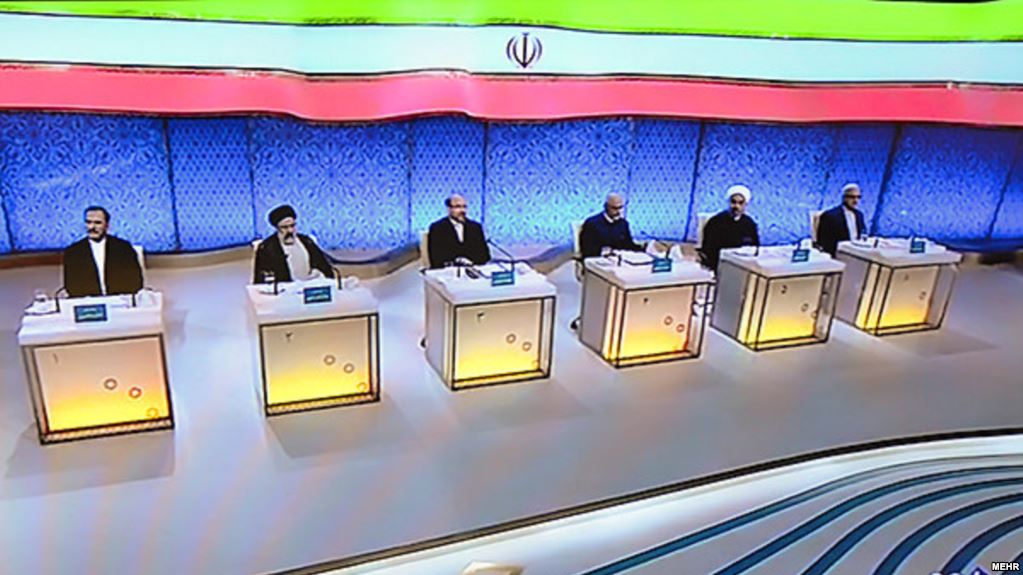Iran’s six Presidential candidates engaged in their second live televised debate on Friday, with the two leading conservative challengers to President Hassan Rouhani again trying to seize upon economic issues.
The theme of the debate was politics and culture, but hard-line cleric Ebrahim Raisi declared that the July 2015 nuclear deal, between Iran and the 5+1 Powers, had not brought economic recovery.
“This deal was like a check that the government has been unable to cash,” Raisi said.
The cleric, who has been favored by the Supreme Leader’s office, accused the Government of demonstrating weakness in the negotiations before and after the accords, amid ongoing US sanctions that have limited foreign trade and investment.
“Saying that if we don’t sign the agreement, the other side will take action and attack our nuclear sites [was] a very bad message for the talks,” said Raisi, the head of the billion-dollar Astan Quds Razavi foundation.
However, both Raisi and Tehran Mayor Mohammad-Baqer Qalif each expressed commitment to the nuclear deal if elected.
Qalibaf, who is pledging an increase in 5 million jobs, said the Government was relying heavily on foreign investment while ignoring national resources.
That appeared to link up with the Supreme Leader’s challenge to Rouhani’s approach linking economic recovery — Iran rebounded with a growth in GDP of about 7% in 2016 — to a foreign policy of engagement. Ayatollah Khamenei has said that all candidates must promise that “their eyes won’t be set outside our borders but on the nation itself”.
See Iran Daily: Supreme Leader Intervenes in Election Against President Rouhani
Rouhani: “Why Did You Insult Those Who Were Negotiating?”
Rouhani replied to the pressure by accusing hardliners and conservatives of trying to sabotage the nuclear deal: “If [this] is an accepted agreement, then why did you raise billboards in Tehran? Why did you insult those who were negotiating?”
Perhaps more significant was Rouhani’s inclusion of the Revolutionary Guards in his criticism and his fightback against Iranian ballistic missile tests since the nuclear deal was implemented in January 2016, used by the US to justify maintenance and extension of sanctions on Tehran.
“We saw how they wrote slogans on missiles and showed underground [missile] cities to disrupt the nuclear deal,” Rouhani said.
He again warned that a victory for the hardliners and conservatives could bring renewed repression, saying that Iranians had a choice between an authoritarian government or a democratic one.
The President added that Raisi and Qalibaf were happy about the election of US President Donald Trump because they thought he would abandon the nuclear agreement.
1st Vice President Eshaq Jahangiri, who is running as a fallback candidate if Rouhani falters, echoed the President’s emphasis on the deal by calling it one of Iran’s greatest achievements.
The candidates’ main lines are likely to be repeated in the third and final debate on May 12, as it focuses on economic issues.
(Hat tip to Golnaz Esfandiari and Radio Free Europe for summary and live blog of the debate)

